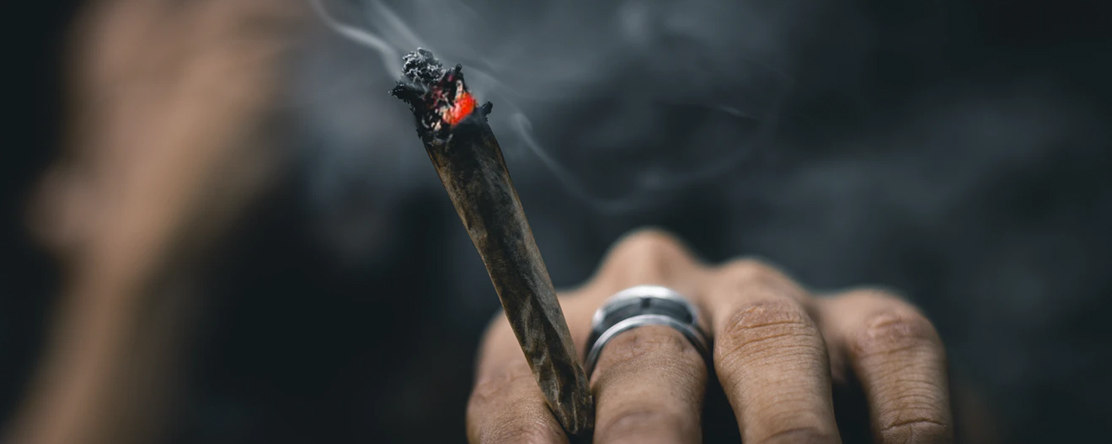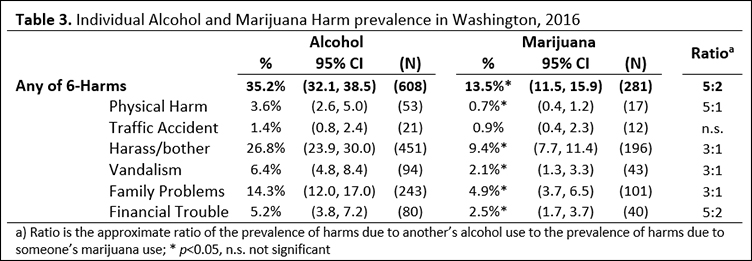
Marijuana and Alcohol Harms to Others
- William Kerr, PhD
- Edwina Williams, MA, Deidre Patterson, MA, Katherine J. Karriker-Jaffe, PhD

Extending the Harm to Others Paradigm: Comparing Marijuana- and Alcohol-attributed Harms in Washington State
Published in the Journal of Psychoactive Drugs, new research from PHI’s Alcohol Research Group, and RTI International, a nonprofit research institute, was conducted using 2014 to 2016 data from Washington State where recreational marijuana use has been legal since 2012.
Abstract
Harms attributed to others’ alcohol use have been extensively studied in the US and internationally, but no studies have measured harms from others’ marijuana use. We utilize data from five cross-sectional waves of a survey series with representative samples of Washington state residents conducted every 6 months from 2014 to 2016, after the legalization of adult use marijuana. Harms attributed to others’ drinking and to others’ marijuana use included family and financial problems, assault, harassment and vandalism experiences and accidents due to impaired drivers. Past year harms attributed to others’ marijuana use were reported by 8.4% of the sample, while 21.3% reported alcohol-attributed harms and 4.3% experienced both. Women were more likely to experience harms from either substance. While heavy drinkers were most likely to experience alcohol harms from others’ use, frequent marijuana users reported the least harms from others. About three times as many individuals reported harassment, vandalism or family problems attributed to someone’s alcohol use compared those harms attributed to someone’s marijuana use, with a smaller ratio seen for financial trouble and a wider ratio for physical harm. Harms attributed to other’s marijuana use in Washington were found to be substantial, but lower than harms from others’ drinking.
See the full study

Acknowledgments: This work was supported by the U.S. National Institute on Alcohol Abuse and Alcoholism (NIAAA) at the National Institutes of Health (NIH) (grant numbers R01 AA021742, R01 AA022791 and P50 AA005595). Content and opinions are those of authors and do not reflect official positions of NIAAA or the National Institutes of Health.
About the Alcohol Research Institute (ARG)
For over sixty years, the Alcohol Research Group (ARG) has been actively engaged in critically needed alcohol- and other drug-related public health research. We study drinking and other drug use and how these and other factors such as gender, race/ethnicity, sexual identity, socioeconomic disparities, and environmental differences affect health. ARG is also home to the NIAAA-funded National Alcohol Research Center and training program. Please visit arg.org.
ARG is a program of the Public Health Institute, an independent nonprofit organization, dedicated to promoting health, well-being and quality of life for people throughout California, across the nation and around the world.
Originally published by Journal of Psychoactive Drugs
Work With Us
You change the world. We do the rest. Explore fiscal sponsorship at PHI.
Support Us
Together, we can accelerate our response to public health’s most critical issues.
Find Employment
Begin your career at the Public Health Institute.


